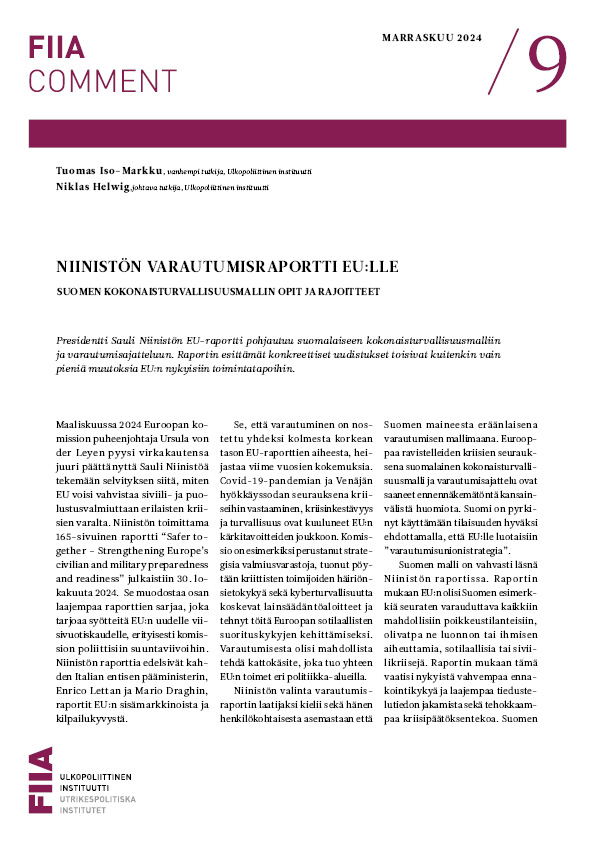The era of the Millennium Development Goals and the Millennium Declaration expires in September 2015. As the largest donor of international development aid and trader with the developing countries, the EU has a key interest in the future outcome. It has also made binding commitments to support developing countries’ own efforts to fulfil the present goals, as well as to act as a global partner.
In the ongoing consultation process, the UN is pushing ahead with an enabling, universal development paradigm with an enhanced development partnership that goes well beyond traditional development assistance.
Whereas the EU and the UN share common ground on human rights, governance and security issues, their preliminary proposals differ significantly on the question of a global partnership. The European Commission has tabled a proposal for the Union that is still based on a very conventional donor-recipient approach, which the UN seeks to reject.
The European Commission proposal is problematic because it fails to present a comprehensive analysis of the current Millennium Development Goal on a global partnership, especially regarding trade and debt issues. Instead, it focuses on developing countries’ domestic policies.
The EU still has time to correct this as the process unfolds. Should it fail to do so, it is highly unlikely that other donors will take up the UN proposal and push it through in the inter-governmental negotiations.








